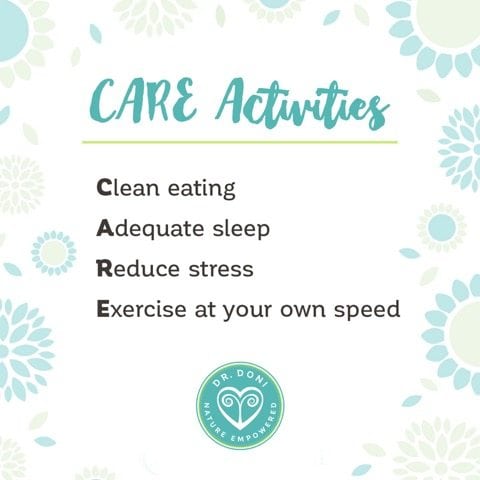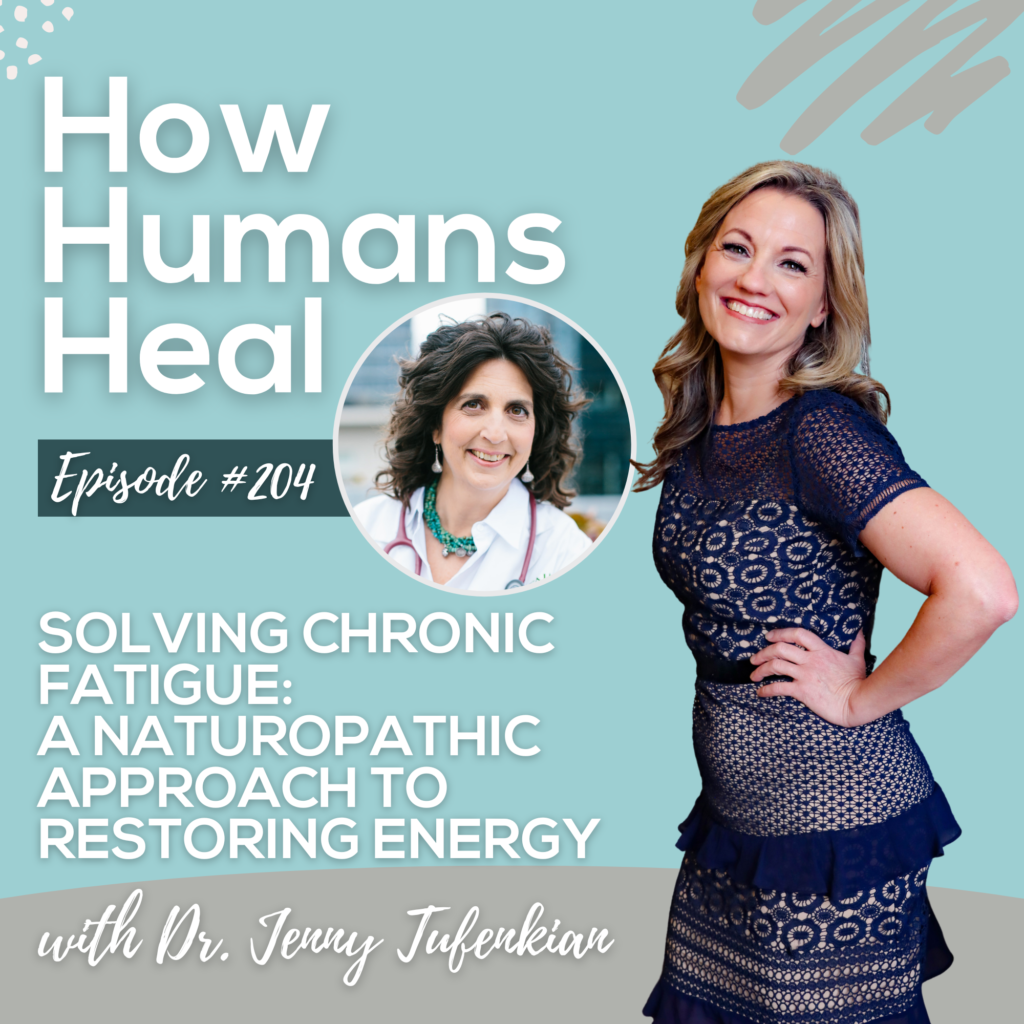

Dr. Doni explains why moms-to-be, new moms, and moms in general are particularly prone to adrenal distress, and what they can do to recover.
In the previous article in this series on women’s health, Changing Views on Fertility and Pregnancy, I mentioned that, when trying to get pregnant, it is important to address imbalanced cortisol and adrenaline – what I refer to as adrenal distress – as they can affect ovarian function and therefore your ability to conceive.
That is certainly true, but it is also important to know that adrenal distress can also affect the way you feel during and after pregnancy, even years after your baby or babies are born. It can affect your baby’s health as well because your stress exposure and cortisol and adrenaline levels influence your baby’s health while you are pregnant, while you are breastfeeding, and throughout his/her life.
The effect of stress is transferred to your baby, not just genetically, but “epigenetically” as well, which means that your body’s ability to recover from stress will impact your baby’s health now and into the future. I wrote about epigenetics in another post about oxidative stress as well if you’d like to learn more. Consequently, the more you do to optimize your own cortisol and adrenaline levels, and improve your ability to recover from stress, the better it is for your health and for your children.
In my practice as a naturopathic physician and midwife, I often find that the moms with whom I work have adrenal distress. Years of taking care of newborns, not getting great sleep, and not having much time for self-care take their toll – resulting in what I call “mom syndrome.” Many moms have it – I had it for sure when my daughter was young – but it is possible to recover. The first step is to recognize that it exists.
How Does “Mom Syndrome” Develop?
As all moms know, having a new baby is exhausting. You are on call day and night, you rarely if ever get an unbroken night of sleep, and you are constantly on the go, taking care of baby as well as the rest of the family, the home. ‘You time’ is a distant memory!
This schedule places an enormous stress on the body which responds by triggering the adrenal glands to release higher levels of cortisol and adrenaline in an attempt to try and help us deal with it. Your adrenal glands are above your kidneys – if you reach around to your low back area, that’s where they are, one on each side of your body – and they do a great job producing just the right amount of these substances, in the right balance at just the right time of day (more in the morning than at night). We need a healthy amount of cortisol and adrenaline in our systems but, when we are stressed – and really I should say as we are stressed (because we are all stressed to a certain degree), the adrenal glands respond by working harder and producing more.
If this stress goes on for a long period of time, as it does when you have small children, over time, and depending on your genetics and your own exposure to stress during your childhood, the adrenal glands adapt to it and can go into a pattern of either producing too much or too little cortisol and adrenaline. I think of it as your current “stress mode” or “stress pattern.”
Because cortisol and adrenaline influence so many other areas of the body, including all your other hormones, digestion, immune function, and nervous system, this can lead you to feel any number of uncomfortable or disconcerting symptoms such as:
- Feeling exhausted and tired a lot of the time
- Feeling irritable, grumpy, and/or reactive or weepy
- Feeling tired all day and then wide awake at night
- Feeling anxious, worried, and/or nervous
- Bloating, achiness, dizziness, brain-fog, and forgetfulness
- Frequent infections – sinus, bladder, vaginal, etc.
- Craving salty foods and/or sweets
This condition is often referred to as “adrenal fatigue” or “adrenal exhaustion.” I find these terms to be misleading as the disrupted adrenal activity can vary from one person to the next – both cortisol and adrenaline levels can be too high or too low at various times of the day. It’s not that the adrenals are tired, it’s that they are DISTRESSED – which is why I call it “adrenal distress.” The good news is that, in most cases and with the right support, they can recover from this distress.
Common Questions in Addressing Adrenal Distress
You ask: What is the right support for me?
When trying to figure out the answer to this question, I find it helps to determine the main way that adrenal distress is affecting your health. To help you do this, I have created a 12-question online quiz called “Are You Suffering from Adrenal Distress?” that will calculate for you the degree of adrenal distress you are experiencing and the major symptom area that needs to be addressed first in order to help you recover.
Next, and depending on the severity of your symptoms, I recommend having your cortisol and adrenaline levels tested, as well as your neurotransmitter levels so we can see exactly how your body has adapted to stress. From there, we can start to recommend herbs, nutrients, and other support to best match your needs.
For example, there is a whole set of herbs called “adaptogens” that are known to help our bodies recover from (or adapt to) stress. Certain adaptogenic herbs are better at increasing cortisol when it is too low, while others are better at decreasing it when it is too high.  So, if we know exactly what your cortisol levels are doing, we can easily tell which is the right herb for you. The same with adrenaline – we need to know your levels so we know which herbs and other nutrients are going to support your body back to optimal levels.
So, if we know exactly what your cortisol levels are doing, we can easily tell which is the right herb for you. The same with adrenaline – we need to know your levels so we know which herbs and other nutrients are going to support your body back to optimal levels.
You ask: I feel so awful! How am I ever going to heal?
Little by little, that is how. And healing little by little is the most successful way to heal anyway. It is tempting to want to go faster, and then as you start to feel better, it’s tempting to do more, but that is exactly what lead you to adrenal distress in the first place. So the lesson now is how to take care of you while also taking care of others, to know your limits, and to forgive yourself when you go over those limits. Learn and move on.
 I find that by implementing the simplest of daily routines and choices, my patients achieve significant healing. That’s how and why I developed the Stress Remedy programs – to help make healthy food choices and integrate healthy activities that will help you heal into your daily routine. The Stress Remedy programs – both the 7 day and the 21 day – include daily tips to help you integrate C.A.R.E. into every day: Clean eating, Adequate sleep, Reduced stress and Exercise. Learn more here.
I find that by implementing the simplest of daily routines and choices, my patients achieve significant healing. That’s how and why I developed the Stress Remedy programs – to help make healthy food choices and integrate healthy activities that will help you heal into your daily routine. The Stress Remedy programs – both the 7 day and the 21 day – include daily tips to help you integrate C.A.R.E. into every day: Clean eating, Adequate sleep, Reduced stress and Exercise. Learn more here.
If you’d like one-on-one support to help you recover from adrenal distress, you may want to arrange a consultation with me so we can review your case together and I can guide you along the way.
 Or if you’d like to read a bit more about adrenal distress, you can download this free 35-page ebook I wrote called A Guide to Adrenal Recovery. Just sign for my Weekly Wellness Wisdom e-newsletter, and you’ll get access to the free download.
Or if you’d like to read a bit more about adrenal distress, you can download this free 35-page ebook I wrote called A Guide to Adrenal Recovery. Just sign for my Weekly Wellness Wisdom e-newsletter, and you’ll get access to the free download.
Adrenal distress won’t be discovered on regular blood tests or at your annual physical exam so, more than anything I want you to know that it’s not all “in your head” and there is something you can do about it.
If you are feeling tired-out, grumpy and just not yourself, you might actually have adrenal distress – so don’t give up or give in to medications with side-effects. Put you at the top of your to-do list and let’s get you feeling better so you’ll be better able to take care of your family as well.
–Dr Doni
5th December 2016
P.S. Based on reader feedback, I’m thinking of creating a group online course where you can learn about how to address adrenal health and methylation. If you think this sounds interesting, please let me know here so I can gauge the level of interest.
Yes! I’m interested in a group online course on addressing MTHFR and adrenal health!
Please enter your name and email to be notified as this course is developed:
Share this Post:
Dr. Doni Wilson's Team
14 Day Detox Program
Take the Stress Type Quiz
Dr. Doni Social Media
Popular Posts


The 5 Burnout Types

Healing HPV Holistically: Dr. Doni on the Inspire Health by Jen Podcast

Recent Podcasts
Signup to receive our weekly newsletter with all the latest news, podcasts and special offers
New Book - Order Today!

SIMPLE PRACTICES for SHIFTING FROM YOUR STATE of STRESS to YOUR FLOW and FREEDOM
MASTER YOUR STRESS
RESET YOUR HEALTH
Order Now! Related Posts

What is making you susceptible to HPV?
I have been working with women who had abnormal cells on their cervix and/or vaginally, caused by HPV for over 20 years now. And while

The 5 Burnout Types
Did you know there are 5 burnout types? They are based on your Stress Type®, which is how your adrenal function has been affected by

Healing HPV Holistically: Dr. Doni on the Inspire Health by Jen Podcast
Dr. Doni was interviewed by Jen Ciszewski on the Inspire Health by Jen Podcast, talking about how to heal away HPV from your body for good.

Stress and Trauma: The Science Behind It, How It Shows Up and How to Heal: Dr. Doni on The Burn Fat and FEAST Podcast
Dr. Doni was interviewed by Sarah B. Thomas on the Burn Fat and FEAST Podcast, talking about the impact of stress and trauma on our health and what to do to recover from them.














